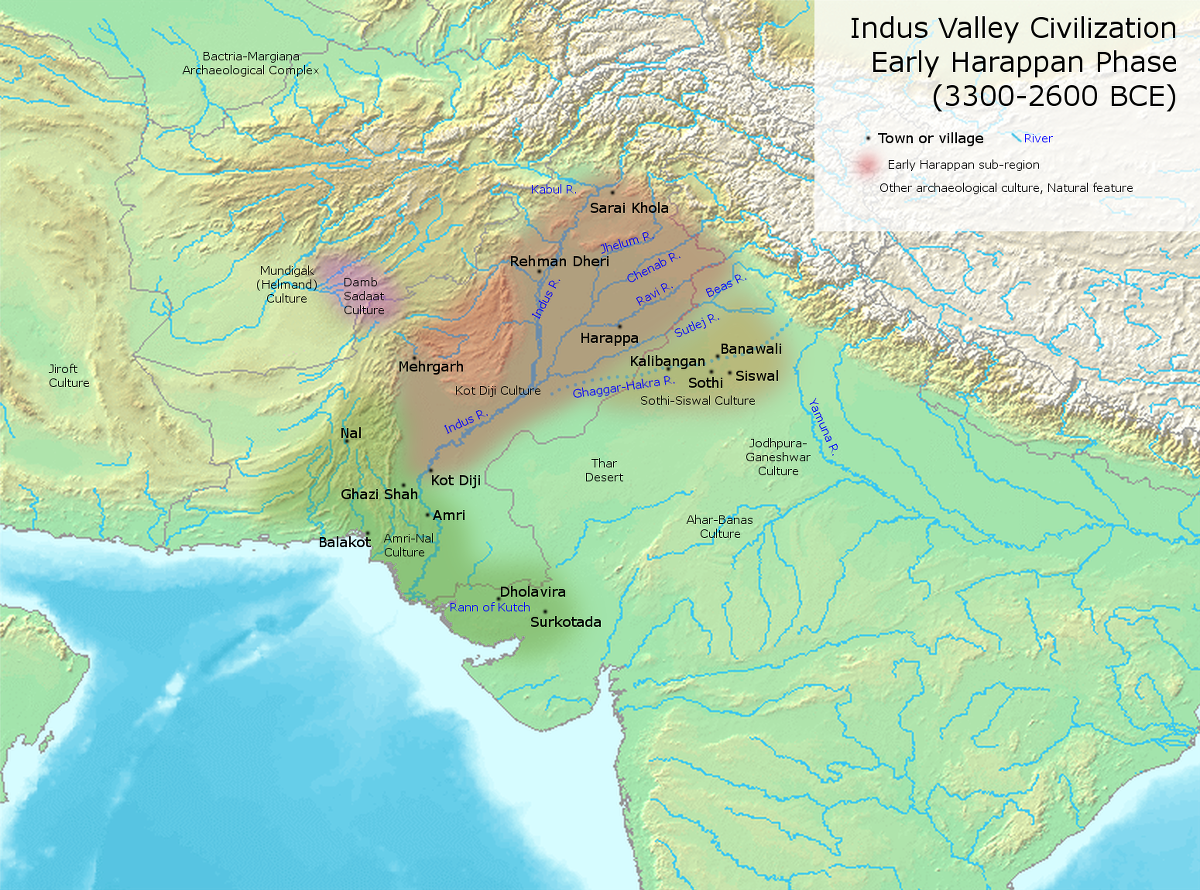
Map of Northeast India showing the distribution of Neolithic sites
July 23, 2019 5 12074 Prehistory is the period in human history before recorded events i.e no written records are available for pre-history of India. We can divide Prehistoric India into 4 ages. The Paleolithic (Old Stone Age), Mesolithic (Middle Stone Age), Neolithic (New Stone Age) and the Metal Age.

Prehistory of Indian Subcontinent Education Province
This lecture talks about Neolithic sites of North and North East India extremely important for upsc history optional paper 1.History optional telegram group.

Map of Northeast India showing the distribution of Neolithic sites
Important Neolithic Sites Pre-historic India: Chalcolithic Age (Stone Copper Age) Characteristics of the Chalcolithic Age Important Chalcolithic Sites Sources of pre-historic India: The sources which help in reconstructing history are: Literary sources - which include religious literature & secular literature. Non-literary sources. Literary Sources
History For IAS Paleolithic and Mesolithic Age in India
4 Neolithic Sites (For History Optional) Mehrgarh , Kili Gul Muhammad, Rana Ghundai, Anjira, Mundigak, Gumla, Rehman Dheri, Tarakai Qila, Sarai Khola are Neolithic sites in North West Indian subcontinent North-West India subcontinent Baluchistan: Mehrgarh in the Kachhi plain, Kili Gul Muhammad in the Quetta Valley,

Middle East Map BC British columbia itmb, buy map of british columbia
and R. Korisetter, 'Dating the Neolithic of South India' , in Antiquity , Vol.81 (No. 313) 2007, pp.755-778. 7. For locating sites, the Survey of India maps on the quarter-inch scale (now 1:2,50,000) have been used. The task would become so much easier if the Gazetteer of India and Pakistan , prepared by

Download scientific diagram Map of the Neolithic Pattern of India
a site or culture as neolithic. On the basis of this definition, Worman plotted the sites at which Indian smoothed Stone Celts had been found.' Accordingly, they were noted to occur almost exclusively in Assam and Bengal and central and southern India—south of the Ganga plain, north Of

Map of Indiansubcontinent showing archaeological evidence for early
Upper Palaeolithic Period. The paintings of the Upper Palaeolithic phase are linear representations, in green and dark red, of huge animal figures, such as bisons, elephants, tigers, rhinos and boars besides stick-like human figures. A few are wash paintings but mostly they are filled. with geometric patterns.

draw the political map of India and show peolithic site mesolithic site
Introduction: The Neolithic Age in India, a significant phase in human history, witnessed the transition from nomadic hunter-gatherer lifestyles to settled farming communities. This period, marked by advancements in agriculture, animal domestication, and pottery-making, laid the foundation for future civilizations.

The Indian Neolithic Brown Pundits
MAP : 2 Some Important Archaeological Sites not to be republished. The next stage, from about 10,000 years ago, is known as the Neolithic. You will be learning about the Neolithic in Chapter 3.. Ostriches in India! Ostriches were found in India during the Palaeolithic period. Large quantities of ostrich egg

Stone Age India Information, Sites, Photos Ramani's blog
History of South Asia Outline National histories Regional histories Specialised histories v t e The Mahabodhi Temple in Bodhgaya, India, which is the alleged place of enlightenment of the Buddha. It remains one of India's most important archaeological sites.

Rise of the Indus Valley Ancient and Early Medieval India Brewminate
Mehrgarh is a Neolithic archaeological site (dated c. 7000 BCE - c. 2500/2000 BCE) situated on the Kacchi Plain of Balochistan in Pakistan. It is located near the Bolan Pass, to the west of the Indus River and between the modern-day Pakistani cities of Quetta, Kalat and Sibi.The site was discovered in 1974 by the French Archaeological Mission led by the French archaeologists Jean-François.

Distribution of Neolithic/Chalcolithic sites on the Indian Peninsula
Conclusion. This 'Neolithic sites in India' study material concludes that India is a country that is having four Neolithic provinces, namely; Central India & Western India, South India, Eastern India, as well as Kashmir. Moreover, it states that the Neolithic period commenced in about 10,200 BC in the Levant, taking place from the Natufian.

Neolithic Sites In India Map
The important sites were found in Kashmir, Karnataka, Tamil Nadu, Andhra Pradesh, Meghalaya, Bihar, and Odisha. The earliest Neolithic settlements were developed in the west of the Indus River. Example: Mehrgarh's neolithic culture started around 8000 BC. Neolithic sites in India map North-Western India

Chalcolithic Period History of india, Ancient indian history, Indian
Neolithic Sites (Map For History Optional) selfstudyhistory Posted on October 15, 2017 0 This content is only for paid members. To access this, you need to enroll for Map Material Program or Test Series for history optional. Go through the following page for enrollment: https://selfstudyhistory.com/map-history-optional/ Existing Users Log In

Chalcolithic Period INSIGHTSIAS
Daojali Hading. Daojali Hading is a neolithic site in Dima Hasao District of Assam, India on a low hillock about 1000 feet above sea level, [1] dated to about 2,700 years before present. [2] Excavated in 1961-63 by a team led by M C Goswami and T C Sharma, [3] it is the first stratified neolithic site discovered in Northeast India. [4]
The major independent Neolithic zones of South Asia, with selected
The early important Neolithic sites in India are Bhirana in Haryana from 7570BC-6500BC, and in Mehargarh it was between 6500BC to 5500BC. However, in South India the Neolithic period was from 6500 BC to 1500 BC. The predecessor of Neolithic age was Mesolithic age, and the successor of Neolithic age was Chalcolithic age.